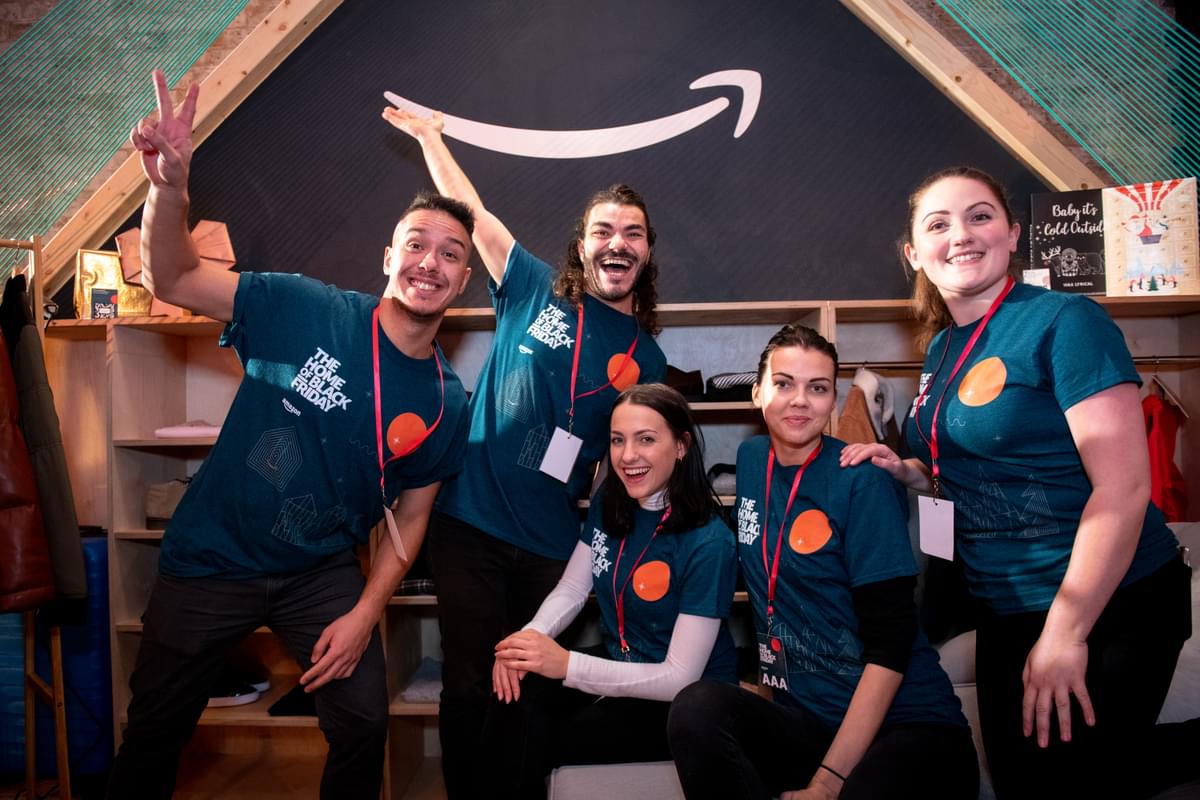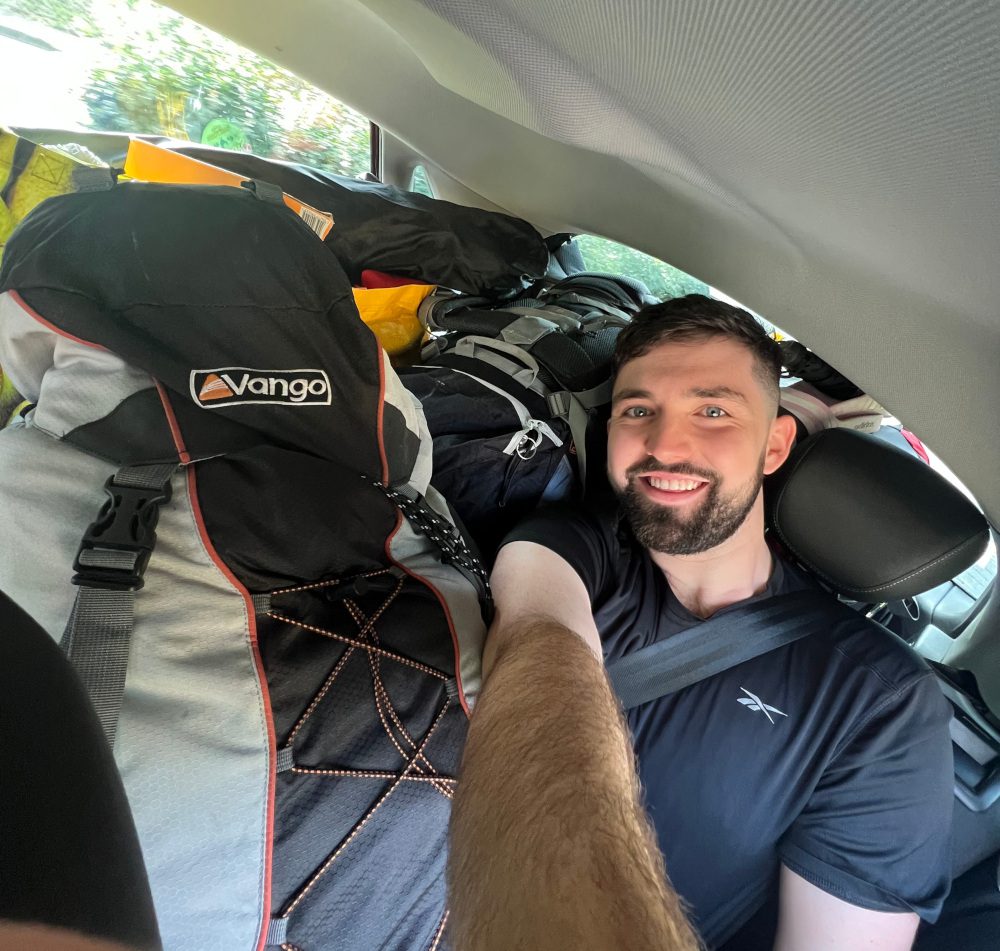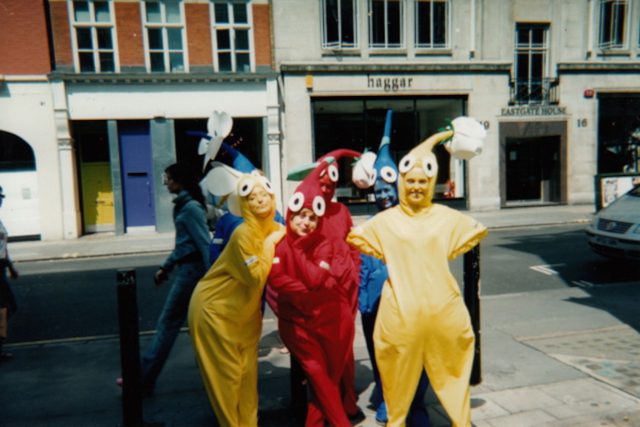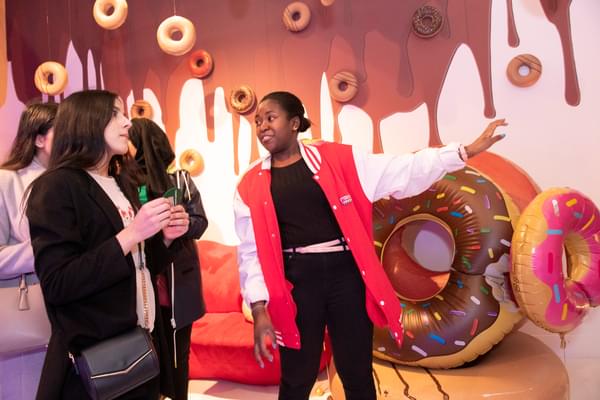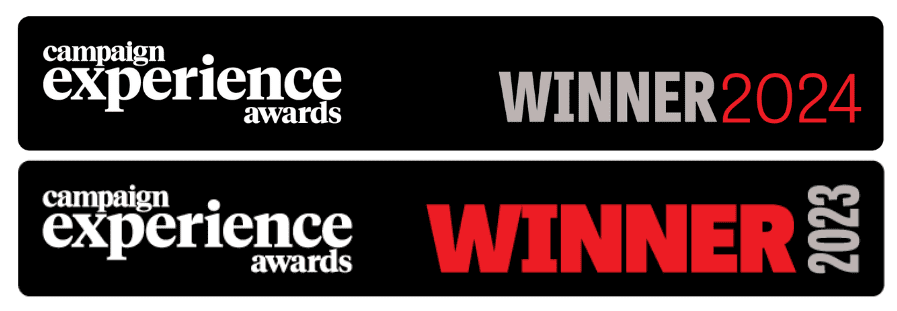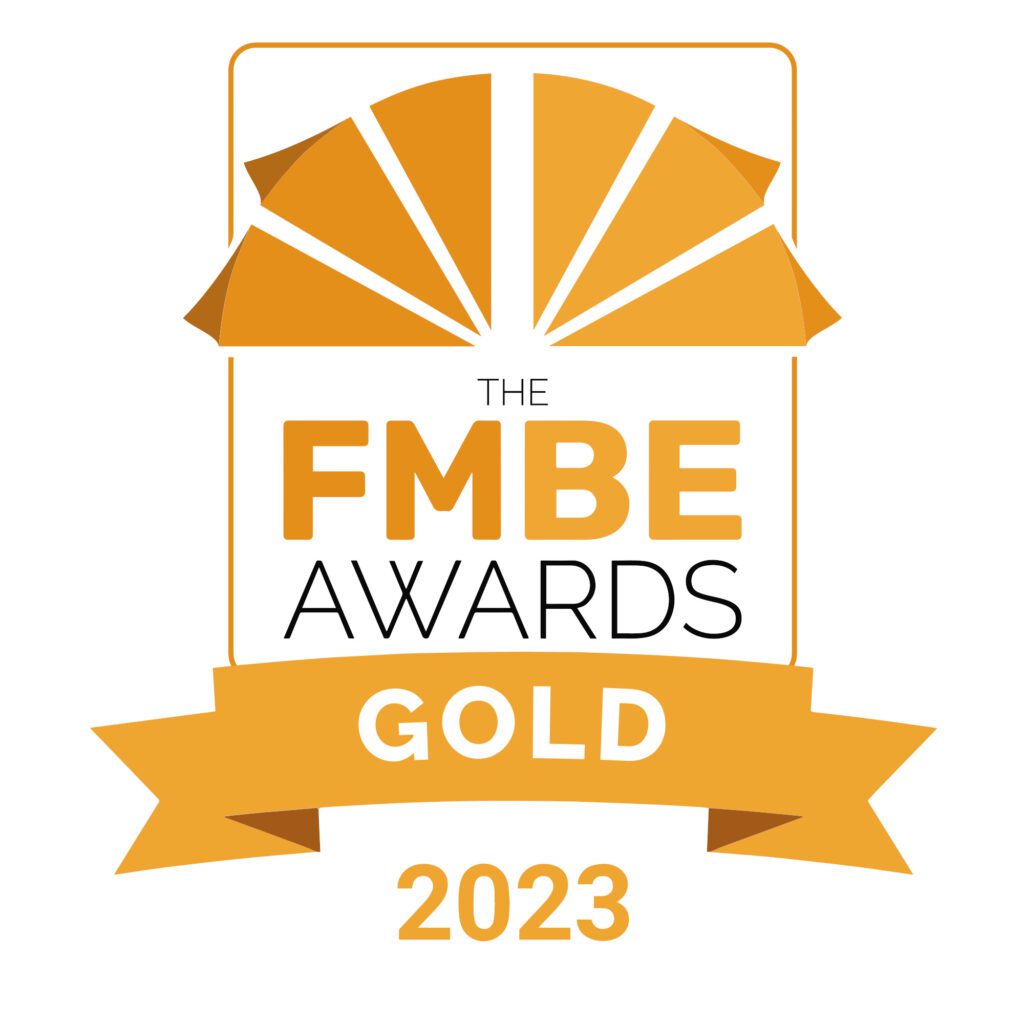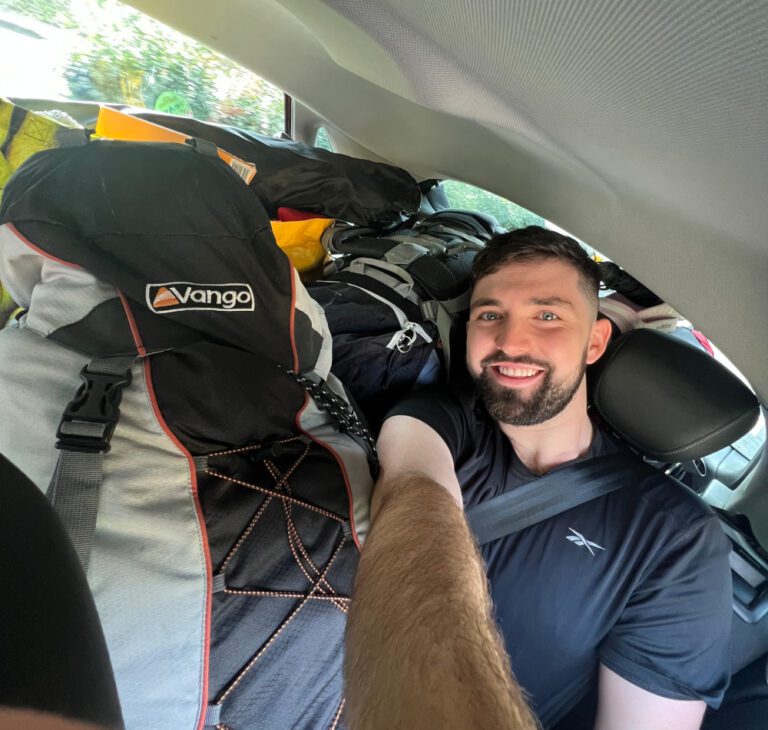
After attending and working dozens of festivals across Europe, HEL’s very own Account Manager and resident festival aficionado Sam Kelly, has compiled his list of everything you need to know when you’re packing to work at a festival.
HEL’s began life in a festival field in 1996, and festival activation staffing is still a core part of our offering. Along with countless smaller regional and brand festivals, Sam has managed the staffing of HEL’s jobs at Glastonbury, Standon Calling, The Cambridge Club, Love Supreme, All Points East, and Cornbury.
Outside of HEL’s, Sam has worked at Glastonbury, Leeds Festival, Rise Festival, Boomtown, Mint, Parklife, and attended many others.
Sam Kelly | Account Manager | Tuesday 14th May 2024
Tips from my experience
If you’re a seasoned festival goer you’ll probably already be aware of a lot of my tips in this article, so you may want to skip straight to the downloading the printable checklist using the button below.
However, many of these tips are specific to working at a festival and not just being there for the party!
I’ve attended festivals every summer for the past 10 years and began my career in the events industry managing teams and putting up glamping bell tents in all conditions across Yorkshire.
I’ve seen tents flooded with mud, literally blown away, and I’ve camped in 30+ degree weather. I’ve worked at festivals during snow storms and during dust storms, and every weather condition in between. Over the years I’ve learnt a lot, and below I’ve shared my knowledge and experiences, and my top tips when preparing for a weekend of shifts in a field!
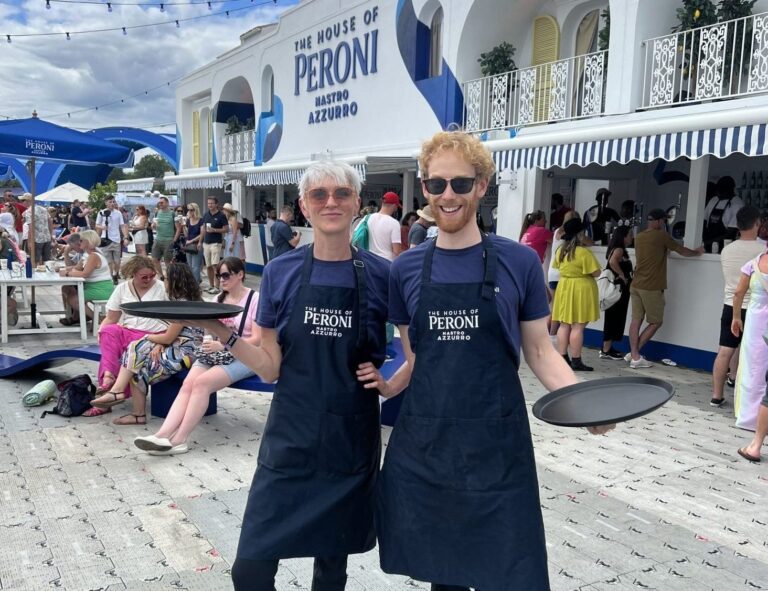
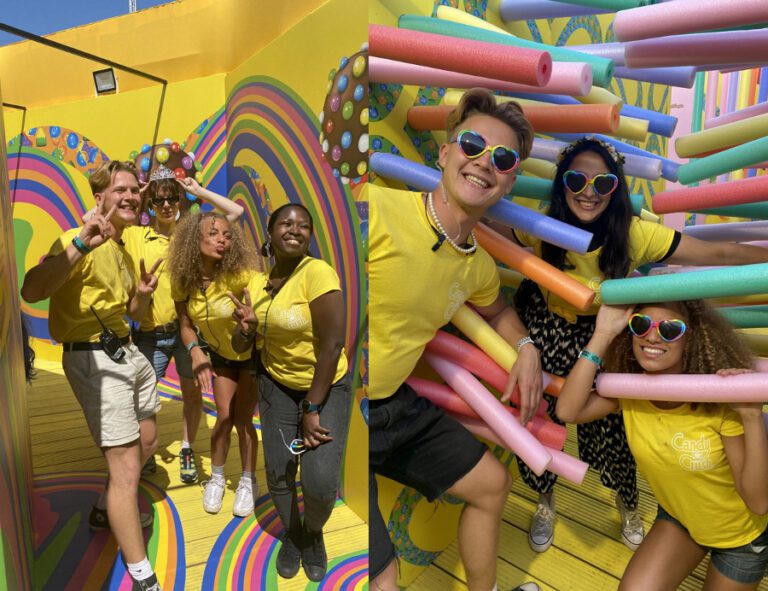
Are you looking for an experienced festival team for your upcoming activation, please get in touch!
Before you set off
The most important items to check you have before leaving home are your festival accreditation, wallet/purse and ID. Basically everything else you need can be purchased on site if you forget it (some festivals even have a pharmacy).
If your accreditation is on an email, I’d recommend printing out the QR/Barcode
Take some cash with you, it’s not uncommon for the card machines to go down and if you need to grab food quickly on your break this can be an issue without cash. It’s worth noting many festivals are also now totally cashless, so don’t forget to top up your wristband before you go if that’s the case.
Download What3Words, and pre-load the area of the festival. Even without signal, the app with use your phone’s GPS and allow you to save and navigate to 3x3m square locations, and you can share the three-word codes of locations with your colleagues to help you find where you need to be. For example, pipeline.hacksaw.adventure is the three word code for Glastonbury’s pyramid stage.
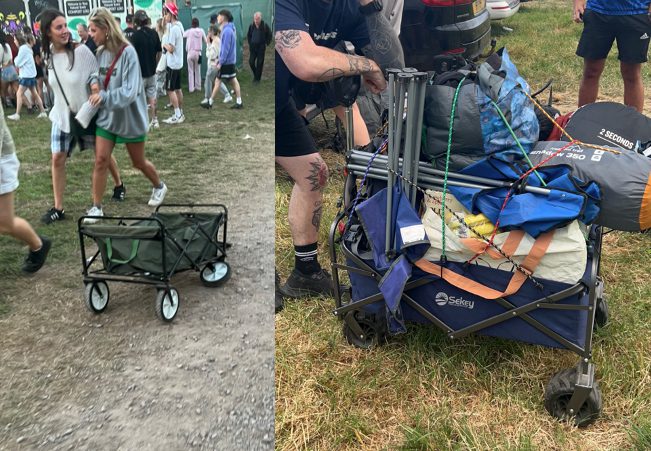
To trolly or not to trolly…
That is the question! I purchased a collapsable trolly a few years ago and it was one of the best things I ever did, and I would highly recommend it. There’s lots of options on Amazon, unfortunately most will break the first time they’re used. Go for ones with thick, sturdy wheels, and pay attention to how securely the wheels attach to the main body. If they’re less than around £80 they will likely collapse or the wheels will fall off. Dragging a broken trolly is not fun!
Make sure there’s enough room to store yours trolley inside your tent (I store mine in the porch area of my tent and use it as a raised storage area) and your car when travelling.
Some people also use collapsible sack trucks which are a cheaper option.
Top tip: bring a pack of bungee cords with you to secure everything to your trolley, and make sure the heavy stuff is at the bottom to prevent it from falling over.
Bags
Don’t bring a suitcase! The wheels will get caked in mud and grass and it’ll be totally ruined. For festivals, I usually take:- A bum bag (for during the day). Make sure that the bag does not have the branding of a competing brand. Try to get one that matches your uniform.
- A backpacking/hiking backpack (if you’re bringing a trolly you can use a duffel bag)
- Heavy duty bag for life (for food and camping equipment)
Tent & tent placement
This will be your home during your time at the festival. My top tips when it comes to tents:
- Remember you’re going to have to carry it and set it up, some tents are incredibly heavy and difficult to erect, so keep that in mind when purchasing.
- Get a double-layered tent. Single layer tents are not great at keeping rain out.
- If you can, get a tent with a porch, it’ll allow you to store some bits outside of your tent (like muddy boots)
- A ‘four person tent’ will fit four people laying side by side within it, and nothing else. Keep this in mind when purchasing a tent, it needs to be twice the ‘person’ size of how many people are actually staying in it (i.e. if there’s 2 of you, you’ll need a 4 person tent). It’s absolutely hilarious when people arrive with a ‘1 person tent’ expecting to be able to fit anything in them but themselves.
- Check you’ve packed your pegs and guy lines (take some spare with you if you have them)
- I’d always suggest getting a light-coloured tent, or they’ll get incredibly hot inside if it’s sunny. The best tents are light on the outside and have a blackout interior.
- Save your tent location to What3Words, it’ll help you find it at night when the camp site will look totally different than during the day.
Top tip: If you already have a dark tent, tape some reflective emergency blankets onto the sunny side to reflect the sun’s heat.
Usually you’ll be in staff camping, but placement is still important, here’s my tips for where to put your tent:
- Don’t go too close to a main path, if it rains these are the first places where rivers of mud form. It’s also more likely you’ll be woken up in the night if you’re by a busy thoroughfare.
- Don’t camp too close to toilets, they’ll smell and you don’t even want to think about what’ll happen if you’re down hill from them and they flood.
- Try to get shade if you can, tents are like greenhouses and get very hot in the morning sun. Consider where the sun will be in the morning and how that will shine into/onto your tent.
- If it’s raining when you take your tent down, make sure you lay it out when you get home to dry off, or it’ll be mouldy by the time you next come to use it.
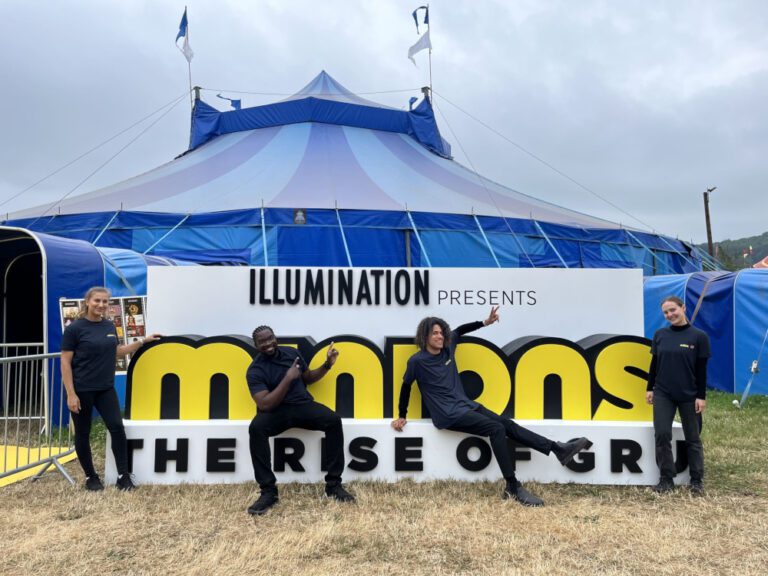
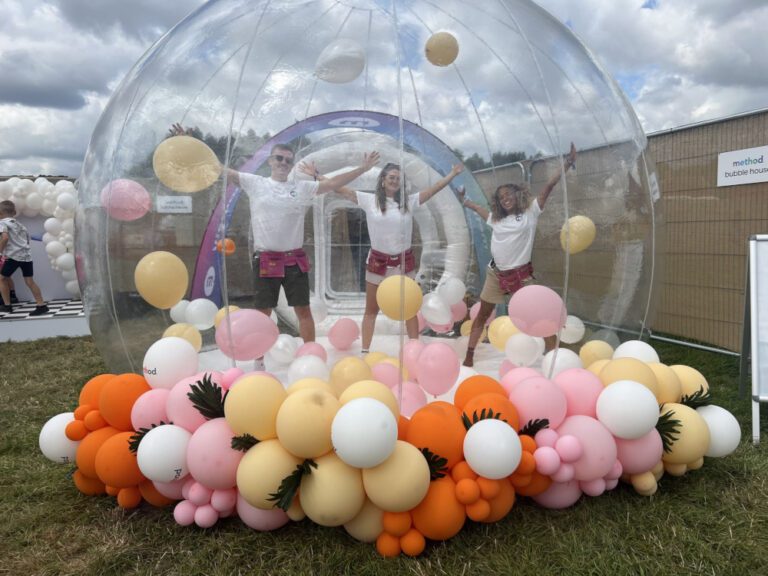
Shoes
I always take three pairs of shoes with me:- Comfortable trainers: I once had to go to the medical tent because the shoes I had on had given me such a big blister I couldn’t walk! They basically told me to get a grip so don’t make the same mistake as me, wear comfortable and well fitting trainers that you’ve already broken in.
- Waterproof walking boots: The age old debate of wellies vs walking boots was finally settled by Glastonbury Festival founder Michael Eavis. Again I would advise breaking these in before you arrive.
- Slides or flipflops: For showering and quick trips to the toilet at night.
Having both trainers and boots allows you to swap them out and leave the other pair to dry if they get wet. Don’t forget about competing brands when wearing shoes to shift.
Weather contingency
You need to pack for every weather condition when it comes to British festivals. A couple of years ago Boomtown was hotter than the festivals I’ve been to in Spain (where there are water cannons and infrastructure set up to deal with the heat), it was pretty gruesome! Here’s my packing tips to deal with the weather.
For when it’s sunny
- Suncream & sunglasses.
- Hats, I think fishing hats are the ultimate option.
- Pack a couple of extra t-shirts, You’ll likely get very sweaty.
- Hand fans – everyone has them at festivals abroad but they’re not as common in the UK, I’d highly recommend getting one.
For when it’s raining
- Waterproof coat, obviously. I’d also suggest getting a pocket poncho that you can carry with you. Remember umbrellas often aren’t allowed in festivals.
- Enough extra clothes to get fully changed into if you’re drenched (don’t only take one pair of trousers).
- Make sure your shoes are waterproof.
Ear Plugs
As well as for sleeping, I always recommend using earplugs when you’re near loud music. Protecting your hearing to enjoy festivals for years to come is incredibly important, and loud music can cause irreversible damage and tinnitus.
You can purchase multipacks of inexpensive foam earplugs (just make sure you’re putting them in right) or my suggestion is to purchase some reusable professional ear plugs with interchangeable filters (they have a flatter frequency response, so instead of muffling sound they just lower the volume, meaning you can still hear the music as intended and will still be able to hear attendees you’re interacting with while on shift). I use a pair of Alpine MusicSafe Pro earplugs, which are less than £25 on Amazon. There are many other options available at varying price points.
If you’re enjoying the show after your shift, remember that the sound technician is likely wearing earplugs while mixing the music, so with a decent pair you’ll have a better experience when listening than without!
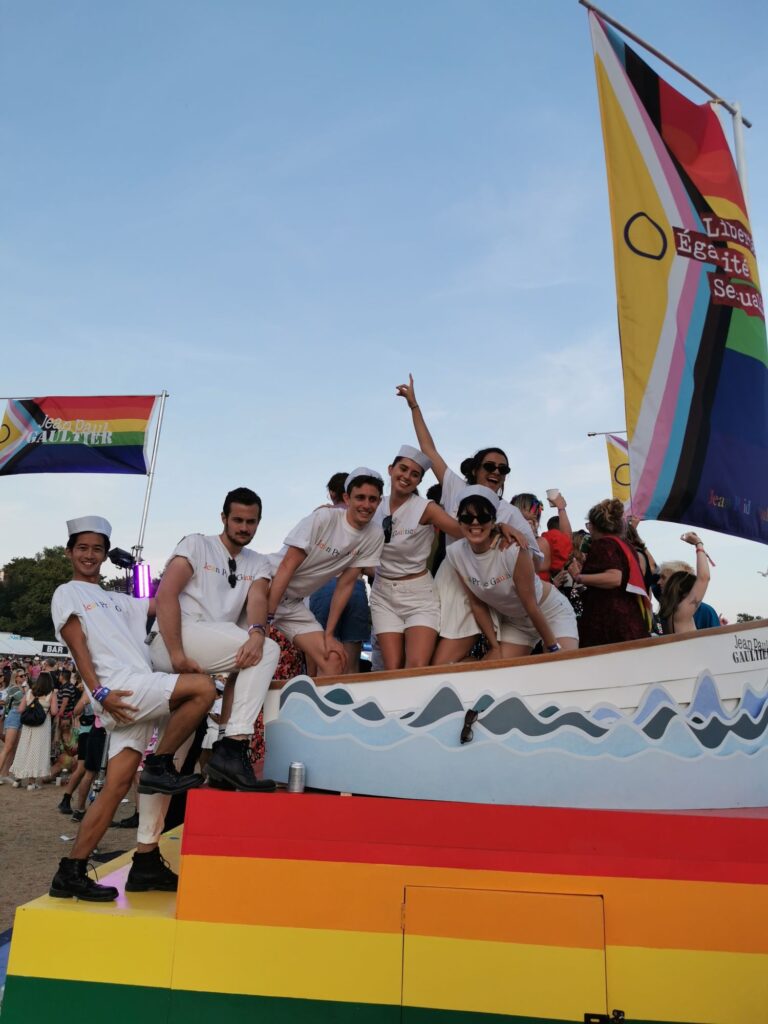
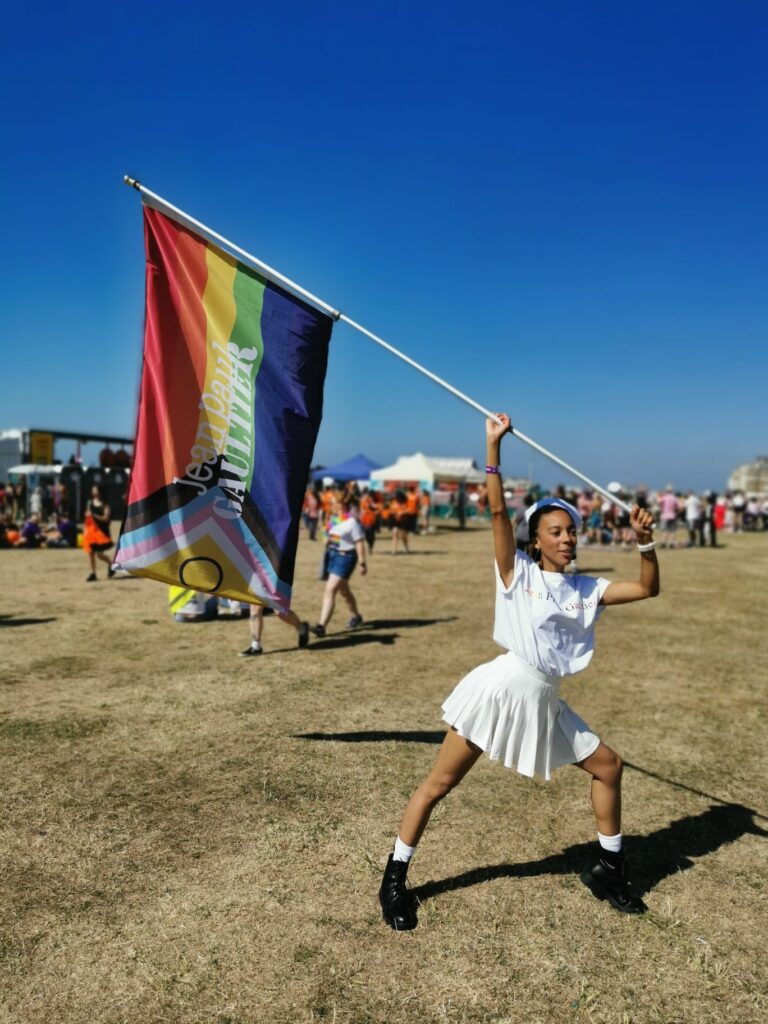
Tech
It’s pretty rare you’ll have access to power at festivals, even in staff camping areas. To plan the capacity of portable chargers you need to bring, have a look online at how many mAh your phone battery capacity is, and times that by the number of days you’ll be at the festival x 2.5.
For example if you have a iPhone 13 Pro Max (4,400 mAh) and you’re at a festival for 3 days, 4,400 mAh x 2.5 x 3 = 33,000 mAh worth of battery packs. I usually take a bulky one that I leave in my tent to charge my phone at night, and a more lightweight one to carry and use during the day.
I usually take a headlamp, hand torch and lantern. You can get fantastic rechargeable LED torches for relatively cheap.
Mobile signal at festivals, especially around the time a major headliner has just finished, is generally non-existent. You’ll need to go old-school and work out ways to get by without your phone – find places to meet and plan specific times to meet your colleagues.
For the best phone signal, have a look at the festival’s website and see if there’s a mobile carrier they’re sponsored by or are partnering with. They’ll likely be the carrier who are providing the temporary phone masts, and their customers will get the best signal. You can get a temporary sim for the festival with that provider to get the best signal – just make sure you let everyone know your temporary number (including the team on site and in the office).
Top Tip: Save a screenshot of someone who you’re working with’s phone number as your lock screen – this will allow anyone who finds your phone to get in touch with you. I’d also suggest setting your emergency contact as someone you’re with at the festival.
Toiletries
There’s a long list of toiletries in the checklist, so I’ll just go over some main points. Besides the usual toiletries you’d always bring with you when staying away from home, don’t forget:- Toilet roll. Carry it with you or a pack of pocket tissues. At Glastonbury none of the toilets have toilet roll. You could pick some up at information desks, purchase on site, or bring with you.
- Hand Sanitiser. Most of the food you’ll be eating at festivals is “finger food”, make sure your hands are clean to avoid getting ill. It’s not uncommon for festival hand sanitisers to run out so have a small bottle of it on you.
- Skin protection. Lip balm, suncream, insect repellant, etc.
Food
If I’m at a festival where food isn’t provided, I usually bring food for breakfast and snacks, and purchase one or two meals per day, a meal at a festival is usually around £15.
Here’s what I usually take:- Fruit like oranges, bananas, and raisins
- Breakfast bars
- Instant pot noodles and porridge pots (just be careful they don’t break)
- Sweets, flapjacks, crisps and biscuits
- Drinks. I usually take orange juice cartons and cordial.
Just remember not to bring anything that needs to be refrigerated!

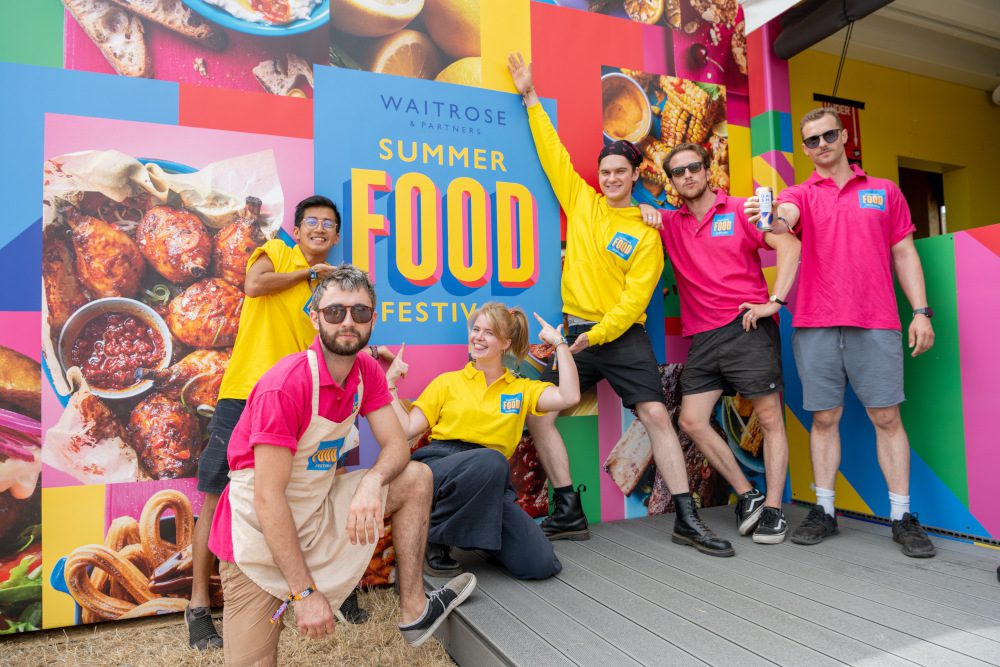
Want to read more about festivals? Check out the first post in my festival blog series, My Top 10 Best Looking Trader Stands At Glastonbury 2023.
Working on a festival job with us and have any questions, please get in touch!
Interested in booking a team of HEL’s Angels for your upcoming festival activation? Please get in touch.

